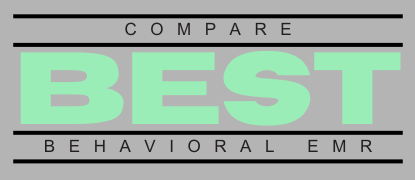If you’re running a behavioral health group practice, you already know that choosing the right EMR software for behavioral health group practices is essential for smooth operations, excellent patient care, and efficient administrative management. But with so many behavioral health EMR solutions available, how can you confidently narrow down your choices and select the one that will genuinely meet your practice’s unique needs?
This article will guide you through the key criteria to effectively evaluate EMR software tailored specifically for behavioral health group practices. We’ll cover everything from essential features and usability to scalability and compliance. By the end, you’ll be ready to make an informed decision and leverage our free practice analysis tool to identify the best EMR solution for your group.
Why Behavioral Health EMR Software Matters for Group Practices
Behavioral health group practices have unique documentation, reporting, and care coordination needs that general EMRs may not fully address. Choosing specialized EMR software for behavioral health group practices ensures:
- Customized Documentation Tools: Tailored templates and charting forms designed specifically for therapy notes, assessments, and treatment plans.
- Enhanced Compliance and Security: Built-in HIPAA compliance, privacy safeguards, and regular security updates.
- Improved Billing and Revenue Cycle Management (RCM): Simplified billing workflows and integrated claims management for smoother reimbursement processes.
- Better Patient and Staff Experiences: User-friendly interfaces, intuitive scheduling functions, and accessible patient portals.
Essential Criteria for Evaluating EMR Software for Behavioral Health Group Practices
When selecting the best behavioral health EMR software, consider the following critical evaluation criteria:
1. Specialized Behavioral Health Features
Choose an EMR explicitly built for behavioral health practices. Look for software that includes:
- Therapy-specific notes and treatment documentation templates
- Outcome tracking and progress note tools
- Medication management and e-prescribing capabilities
- Group session management and attendance tracking
Not sure what features you’ll actually need? Take advantage of our free practice analysis to help you pinpoint the must-have features for your practice.
2. Compliance and Security Standards
Behavioral health EMR systems should offer robust compliance with HIPAA and state-specific privacy laws. When comparing EMRs, verify that the vendors provide:
- Regular software updates to address evolving regulatory requirements
- Encrypted data transmission and secure cloud-based storage
- Audit trails and advanced user-permission settings
For more information about EMR compliance requirements, visit the U.S. Department of Health & Human Services HIPAA resource center.
3. Ease of Use and Staff Adoption
An intuitive, user-friendly EMR ensures your staff can quickly adopt and use the software without frustration. Consider:
- User interface and navigation simplicity
- Availability of training and ongoing customer support
- Mobile-friendly options for clinicians on the go
- Integration with other tools your practice already uses (such as scheduling, billing, or telehealth platforms)
Remember, the easier it is to navigate your EMR, the more your team will embrace the technology, leading to greater productivity and satisfaction.
4. Scalability and Customization
Your behavioral health EMR should grow with your practice. Evaluate your software choices based on:
- Pricing structures accommodating practice expansion (number of providers, locations, and patients)
- Ability to customize workflows, documentation templates, and reporting dashboards
- Flexible integration with new software or services you might adopt in the future
Scalability ensures your investment will continue to deliver value as your practice evolves.
5. Cost Transparency and ROI
When comparing EMR software for behavioral health group practices, carefully examine the total cost of ownership:
- Clear monthly or annual subscription fees
- Setup fees, training costs, and ongoing support charges
- Potential hidden costs or price adjustments based on usage
To help calculate the real costs and ROI potential, review our article, How to Calculate ROI on Behavioral Health EMR Investments.
Common Mistakes to Avoid When Selecting Behavioral Health EMR Software
As you evaluate your EMR options, avoid these common pitfalls:
- Choosing based solely on price: The cheapest option might not have essential features or adequate support.
- Ignoring staff input: Engage your clinicians and administrative teams early in the evaluation process.
- Underestimating implementation and training: Plan sufficient time and resources to successfully roll out the EMR.
Ready to Choose the Right Behavioral Health EMR Software?
Evaluating EMR software for behavioral health group practices doesn’t have to be overwhelming. By carefully assessing specialized behavioral health features, compliance and security standards, ease of use, scalability, and cost transparency, you can confidently narrow down your options.
If you’re still unsure or would like personalized guidance, our experts are ready to help. Take advantage of our no-cost, no-obligation free practice analysis. Simply provide details about your practice, and we’ll recommend EMR software tailored specifically to your unique needs.
Make the switch today and pave the way for improved clinical outcomes, staff productivity, and patient satisfaction.
Meta Description:
Learn key criteria to evaluate EMR software for behavioral health group practices and confidently select the best solution. Free practice analysis available.
